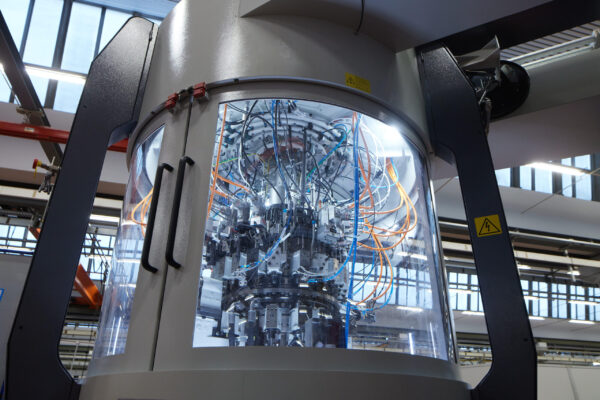Specialist shipping services
Braemar is a leading international shipping services group. Its income is generated in the form of commissions, fees and/or hourly charges for its expertise. It is a purely service business, taking no equity interest in any ship or its cargo; there are no inventories in the group balance sheet. The key drivers to profitability are shipping rates, volumes of seaborne trade and oil and gas activity. Broking services profits can fluctuate with shipping rates, the sterling/dollar exchange rate and the volume of seaborne trade; profitability in the services divisions is subject to the volume of seaborne trade and activity in the oil and gas sector.
The group dates back to 1972, when Seascope Shipping was established as an independent shipbroker; it was admitted to the stock exchange in 1997. Its first acquisitions, Braemar Shipbrokers and Braemar Tankers in 2001, broadened the scope of the broking business. The group has subsequently extended into other types of shipping services.
Today, the group operates through three divisions. The largest, Shipbroking, was significantly extended in 2014 by the merger with ACM Shipping. The two services divisions, Technical and Logistics, were established by a series of acquisitions between 2007 and 2011, in response to the global recession and were aimed at reducing the impact of the shipping cycle.
Exhibit 2: Five-year financial record
Year to February (£000s) |
2012 |
2013 |
2014 |
2015 |
2016 |
Revenue |
|
|
|
|
|
Shipbroking |
49,813 |
46,362 |
40,866 |
53,589 |
70,699 |
Technical |
44,014 |
55,827 |
45,748 |
49,646 |
54,283 |
Logistics |
37,630 |
37,495 |
38,917 |
42,366 |
34,143 |
|
131,457 |
139,684 |
125,531 |
145,601 |
159,125 |
Operating profit |
|
|
|
|
|
Shipbroking |
7,121 |
5,348 |
2,635 |
5,588 |
9,653 |
Technical |
4,104 |
6,425 |
6,905 |
6,289 |
5,201 |
Logistics |
1,888 |
2,006 |
1,981 |
2,275 |
1,577 |
|
13,113 |
13,779 |
11,521 |
14,152 |
16,431 |
Unallocated costs |
(2,367) |
(2,951) |
(2,238) |
(2,621) |
(2,673) |
|
10,746 |
10,828 |
9,283 |
11,531 |
13,758 |
Interest |
181 |
255 |
196 |
(293) |
(387) |
Joint ventures |
252 |
62 |
(88) |
(22) |
0 |
Pre-tax profit |
11,179 |
11,145 |
9,391 |
11,216 |
13,371 |
Source: Braemar Shipping RNS. Note: Before amortisation of intangible assets and exceptional items.
Shipbroking (44% of revenue; 59% of operating profit)
Shipbrokers act as intermediaries between the various parties involved in the shipping of goods by sea. This usually involves bringing together ship owners and people wishing to transport raw materials, components/assemblies and finished goods from the country in which they are produced to those countries where they are to be consumed; the business also brings together parties wishing to buy or sell ships.
The global market leader, Clarkson, had broking revenue of £240m in 2015. The merger with ACM lifted Braemar towards the number two spot in the market. With revenues of £71m, the division is well under half the size of Clarkson, but is believed now to be close in size to Simpson, Spence & Young, largest of a number of independent UK-based shipbroking groups. There are also sizeable competitors based in continental Europe, the US and the Far East.
Braemar’s areas of expertise are in deep sea and specialist oil tankers, dry cargoes and offshore oil production/exploration facilities. The majority of group broking revenue is generated in London, but there are key operations in Singapore and Australia and a further 10 strategically placed overseas locations, concentrating on the needs of their local areas.
The main sources of revenue in shipbroking are:
■
Spot charters – The spot market, the mainstay of shipbroking, involves single journeys, usually priced on a per day basis, with the broker earning a typical commission of 1.25% on the overall cost.
■
Time charters – In a time charter, a ship is hired for a predetermined period of time. The ship remains the property and responsibility of the owner, but the charterer controls the operation of the ship. The duration of time charters can vary from a few months through to several years; its advantage stems from the reliability of income and availability. Ship owners can secure a predetermined level of income to justify the order for a new ship, while the customer can avoid the risks involved in fluctuating spot rates. For the broker, time charters provide an order book and a degree of certainty of earnings.
■
Sale & purchase – Sale and purchase operations bring together buyers and sellers of ships; they also manage transactions for both new ships and those sold for demolition. Teams deal with both ship owners and shipyards, often introducing the purchaser to those able to arrange finance. Braemar’s knowledge base across the sector and its close relationships with many ship owners mean that the team will frequently receive advance notice of certain deals.
■
Derivatives – A number of financial instruments have become available to the market, enabling ship owners and charterers to fix rates for a specified voyage at a defined future date. Braemar operates a successful and highly regarded joint venture with GFI.
■
Research – The ability of shipbrokers to provide appropriate advice to their customers is fundamental. The Braemar research capability, especially in tankers, is among the best in the industry and will be a key factor in developing the customer base.
Technical (34% of revenue; 32% of operating profit)
The Technical division comprises five distinct businesses, offering a comprehensive range of services from 37 offices based in 20 different countries.
■
Braemar Offshore provides a broad range of specialist services to the offshore energy sectors. The principal business is marine warranty surveying services (70% of divisional revenue). It is also involved in offshore installation engineering and naval architecture, and operates a structural, geotechnical and pipeline installation and dynamic positioning consultancy. All of the company’s income is generated in the Asia-Pacific region.
■
Braemar SA is a marine and technical consultancy services business, offering marine surveys and audits, casualty investigations and risk management surveys. It usually works in conjunction with insurers assessing all types of ships from deep-sea tankers to yachts. Other services include assessment of environmental and emission risks.
■
Braemar Engineering is a marine engineering consultancy business, principally involved in the supervision of the design, construction and operation of LNG carriers. The company operates globally from offices in the UK and the US.
■
Braemar Adjusting is recognised internationally as a specialist in the resolution of insurance claims and contractual disputes associated with oil and gas, power generation and mining risks. It operates a global network of offices, able to respond quickly and effectively to incidents caused by extreme weather or other unexpected difficulties.
■
Braemar Howells provides round-the-clock support to both industry and government bodies, co-ordinating and implementing a structured response to major potential environmental problems. There is a sound UK business and a growing operation in Africa, but the occasional major recovery contract following a shipping disaster can transform the performance on a short-term basis. The last such contract followed the grounding in 2011 of the MV Rena off the New Zealand coast; Braemar consolidated £28.3m of revenues and £3.6m of profit, over the subsequent two years.
Logistics (22% of revenue; 9% of operating profit)
Cory Brothers provides ship agency, freight forwarding and logistics services from 18 offices across the UK and in Singapore. The company also has joint agency arrangements in Brazil and Gibraltar.
The ship agency business generates just over half of divisional revenues, looking after the needs of ship owners, charterers and traders on a 24-hour basis, with services ranging from the arranging of supplies to crew transfers and customs documentation. In essence, the company organises the docking, unloading, reloading and arranging the departure of the ship from the port. There is a constant need to update systems and policies and to have the latest technology in place to offer the modern and efficient service required by customers. Cory’s software system offers real-time co-ordination between the customer’s own systems with those of the port being used.
Cory’s freight forwarding/logistics operation supports its customers following the landing of goods in port. Services range from arranging customs clearance and warehousing to the onward transport of the goods by air, road, sea, express courier or by hand. The business has a global contact base offering experience in handling a comprehensive range of goods, including support for businesses as diverse as the inter-continental oil, automotive, nuclear, renewables and recycling industries.




















